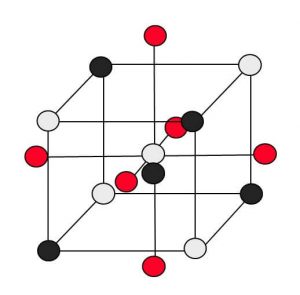There may be a variety of factors affecting the performance of a system. It is quite possible that you control some of these factors while can not interfere some. If you want to increase the performance of this system, you make some changes on some of the factors that are controllable and try to reach to the desired output with trial and error runs. But the result is not likely to be satisfactory. Trial and error runs might cost time and money. You might even have no clue as to the dynamics affecting the output of the system. Under these circumstances, all you need is a good planned methodology.
You can reach to the most probable optimal performance with relatively few number of experiments using the design of experiments.
We prepared two level of training programs for you.
- Design of Experiments – Basic level
- Design of Experiments – Advanced level
Design of Experiments – Basic level
Contents : In this training, the fundamentals of the design of experiments like factors, levels, repetitions, number of experiments, resolution will be discussed. The approach of the design of experiments enabling to analyse the cause and effect reltionship between the inputs (X) and outputs (Y) is scrutinized with all its aspects. The training comprises the philosophy of the design of experiments, planning, execution of experiments, and the analysis of results.
The methodology of coping with the increasing number of experiments due to the abundance of inputs is explained.
It is important that to have as much information as possible despite the fact of using the resources productively. It is also explained how to optimize the output so that the optimum performance is achieved. During the training, the planning of the experiments is done with the aid of Minitab and with the help of various examples (catapult, helicopter). Group studies are carried out to help maximizing the gain, taken out of the training.
Headlines of the training
- The philosophy of the design of experiments
- Main effects and the interrelations concept
- Full factorial experiments
- Optimization of the output
- 2k factorial experiments
- Blocking, center points and analysis
- Overlapping of effects, resolution of the experiment
- Fractional factorial experiments
- Response surface experiments
- Conture and surface graphics
The detailed training plan (day by day) can be given when requested.
What will be gained
- To find the inputs which are affecting most the outputs
- To realize that the experience doesn’t always help to short cut to the result
- To get the most of information with minimum resources
- The differentiation of unimportant inputs from important ones and thus using the resources effectively.
- Design for manufacturability
Participant profile : Managers, Engineers, Specialists
Duration : 4 days
Design of Experiments – Advanced level
Contents : The advanced methods of design of experiments which analyzes the relationshio between inputs (X) and outputs (Y) of a system are focused in this training. It is explained with examples how multiple output optimization is carried out.
In addition to the linear regression method, used in cases of quantitative input and output relations, binary logistic regression methods for the case of qualitative input/output relations are explained.
Taguchi, mixture methods and when we need to apply them are expained in detail.
During the training, the course of learning is supported with rich examples using Minitab.
Headlines of the training
- Nested anova
- Independent desirability function, weight, importance
- Multiple output optimization
- Robust design and Taguchi method
- Mixture designs
- Differences between linear and logistic regression
- Binary logistic regression
The detailed training plan (day by day) can be given when requested.
What will be gained
- To find the inputs which are affecting most the outputs and optimize them
- To realize that the experience doesn’t always help to short cut to the result
- To get the most of information with minimum resources
- The differentiation of unimportant inputs from important ones and thus using the resources effectively.
- Design for manufacturability
Participant profile : Managers, Engineers, Specialists
Duration : 3 days

